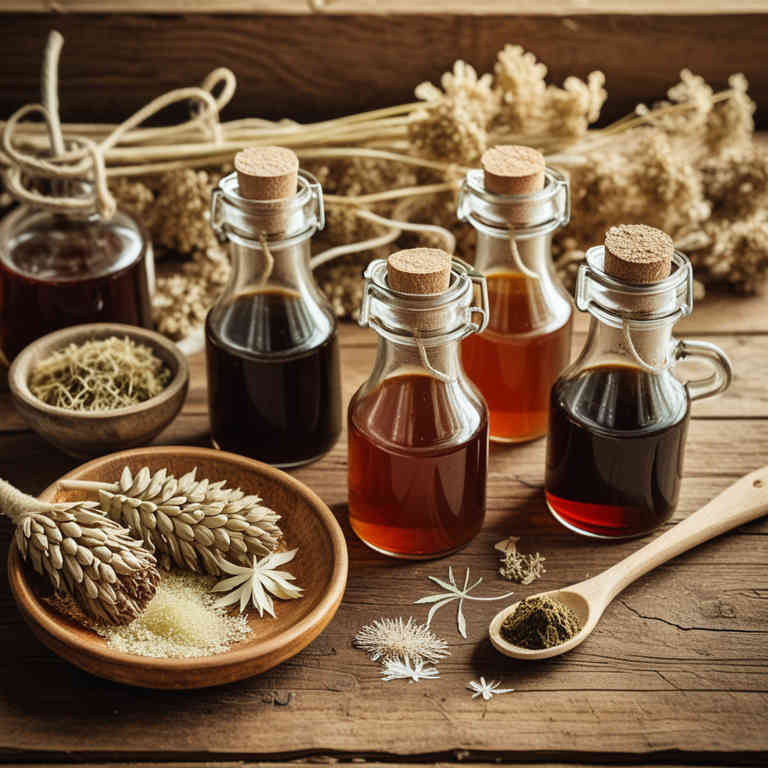Angelica sinensis syrup for medicinal use

Angelica sinensis syrup is a traditional herbal preparation made from the root of the Angelica sinensis plant, commonly known as dong quai.
It is often used in herbalism to support women's health, particularly for menstrual regulation and hormonal balance. The syrup is valued for its potential to alleviate symptoms of menopause, such as hot flashes and mood swings. It may also be used to improve circulation and reduce inflammation in the body.
This preparation is typically taken in small doses and is often combined with other herbs in traditional Chinese medicine practices.
Uses
Angelica sinensis syrup has been used to promote blood circulation, alleviate menstrual discomfort, and support overall vitality in traditional Chinese medicine for centuries.
Historically, it was valued for its ability to tonify the blood and regulate the menstrual cycle, making it a key remedy for women's health. In modern times, it is still used in herbal formulations to address anemia, fatigue, and hormonal imbalances. The syrup is often combined with other herbs to enhance its therapeutic effects.
Its popularity continues to grow as more people seek natural alternatives for health maintenance and wellness.
Benefits
Angelica sinensis syrup has health benefits such as improving blood circulation, supporting reproductive health, and enhancing overall vitality.
It is traditionally used to alleviate menstrual discomfort and regulate hormonal balance in women. The syrup also helps in reducing fatigue and boosting the immune system due to its rich content of nutrients and bioactive compounds. Its warming properties can aid in relieving cold symptoms and promoting digestion.
This herbal preparation is valued in traditional Chinese medicine for its ability to nourish the blood and promote longevity.
Constituents
Angelica sinensis syrup active constituents include ferulic acid, ligustilide, and adenosine, which are known for their medicinal properties.
Ferulic acid acts as a powerful antioxidant, helping to neutralize free radicals in the body. Ligustilide is believed to promote blood circulation and may support cardiovascular health. Adenosine contributes to energy production and can help reduce fatigue.
These compounds collectively make Angelica sinensis syrup beneficial for improving circulation, alleviating menstrual discomfort, and supporting overall vitality.
Preparation
To make Angelica sinensis syrup, first wash and slice the dried Angelica sinensis root, then add it to a pot with water and bring to a boil.
Reduce the heat and let it simmer for about 30 minutes to extract the medicinal properties. Strain the liquid through a fine mesh sieve or cheesecloth to remove the plant material. Next, add honey or a sweetener of your choice to the liquid and stir until fully dissolved.
Finally, pour the mixture into sterilized jars and store in a cool, dark place for up to a few weeks.
Side Effects
Angelica sinensis syrup may lead to gastrointestinal discomfort, including nausea, vomiting, and diarrhea, especially when taken in high doses.
It can also cause allergic reactions in individuals sensitive to plants in theApiaceae family, such as carrots or celery. Long-term use may interfere with blood clotting, increasing the risk of bleeding, particularly in those on anticoagulant medications. Prolonged consumption might lead to hormonal imbalances due to its phytoestrogen content.
Additionally, it may cause liver toxicity in rare cases, so it should be used with caution and under medical supervision.